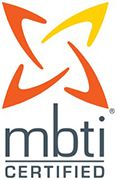Emotional Intelligence is the ability to understand why we feel, think and behave the way we do. It also allows us to better understand others and to develop stronger interpersonal relationships at work and at home.
Developing these competencies allows us to better cope with our daily demands, challenges and pressures and ultimately to make better choices in our lives.
Are there any parts in your life where you wish you made different choices? By developing your Emotional Intelligence skills you’re giving yourself more tools to make better choices in your life.
Success
Research shows that the most successful people – those who consistently outperform their peers both in their personal and professional lives – have a higher emotional intelligence.
People often think that what matters for success is how smart they are. Yes, IQ is certainly important; however IQ by itself is not sufficient. It is Emotional Intelligence that predicts and makes a difference in how successful people become get. The higher the Emotional Intelligence, the more successful people are.
Meaningful Interpersonal Relationships
Emotional Intelligence is a key driver of how people relate to each other and of the quality of the relationships they establish. It significantly influences how people solve interpersonal problems. This impacts both the personal and the professional aspects of life.
Problem Solving and Effectiveness
Conflict often stems from Emotional Intelligence differences between people. Developing Emotional Intelligence helps people solve interpersonal problems more effectively and efficiently. When people understand the basics of how they are different from each other and their individual strengths and weaknesses, they can take steps to reduce conflict and become more accepting.
Improved Stress Resilience
People with higher Emotional Intelligence manage their challenges better and are more resilient. Their daily activities and circumstances feel easier to manage because Emotional Intelligence provides them with an additional set of resources. As a result they make better choices in their lives and avoid making errors that they would later need to correct or that would become obstacles.
Life Satisfaction
People with higher Emotional Intelligence are more satisfied and happier with their personal and professional lives. Emotional Intelligence competencies allow them to understand themselves better and to have a clearer sense of direction. They feel more fulfilled and find more meaning in their lives.
Coaching
Coaching is a great way to develop Emotional Intelligence. Working on Emotional Intelligence is experiential and individual. You can learn about Emotional Intelligence by reading books, but in order to develop your Emotional Intelligence competencies you need to feel your emotions, experience new behaviors and integrate everything in the context of your life and of who you are. As each individual is unique, the coaching process provides you with a personalized and customized focus on your specific needs and on what you chose to work on.
What Is It?
Positive psychology focuses on enhancing well-being and the conditions and processes that contribute to the flourishing and optimal functioning of people, groups and institutions.
Why Is It Important?
Studies have shown that “feeling good” is not only a temporary experience – it also helps build enduring personal resources. Positive emotions enhance your functioning at all levels: cognitive, affective and physical. Many studies have established a correlation between positive emotions and higher wages, creativity, big picture thinking, problem solving, physical health and work engagement.
There are various ways to increase your well-being. For example, by leveraging your strengths; understanding and monitoring your explanatory style; increasing your appreciation and gratitude; engagement; flow; and setting goals in a way that fits your style and supports you. All these aspects are complementary, and create a reinforcing pattern that increases your positive emotions, leading to more positive experiences. This in turn enhances your sense of meaning, fulfillment and life satisfaction.
Coaching
Coaching is an ideal environment to learn and apply the processes that can enhance your well-being and improve your performance. It is an experiential and individual process. You can learn about it by reading books, but in order to develop new habits you need to develop new cognitive patterns, experience new behaviors and integrate everything in the context of your life and of who you are. As each individual is unique, the coaching process provides you with a personalized and customized focus on your specific needs and on what you choose to work on.
Leveraging your strengths is a key aspect of well-being and optimal functioning. Unfortunately, far too many people spend many years – if not a lifetime – headed in the wrong direction.
People have several times more potential for growth when they invest energy and time in developing their strengths instead of correcting their deficiencies.
Unfortunately, people often spend much of their efforts in trying to overcome deficits, thereby taking the path of most resistance. The key to optimal human functioning, performance and success is to build on who you already are. This is why leveraging your strengths is your most satisfying and gratifying strategy.
Gallup scientists have studied strengths for 50 years. They show that “people who do have the opportunity to focus on their strengths every day are six times as likely to be engaged in their jobs and more than three times as likely to report having an excellent quality of life in general”.
In coaching we work to help you identify your unique strengths and figure out the best ways to leverage them. The most successful people start with their main talents, then add skills, knowledge and practice to the mix, thus creating a powerful leverage. We also learn how to manage your weaknesses so they do not become blind spots or derailers. This process helps you become more aware of your potential while keeping your limitations under control.







